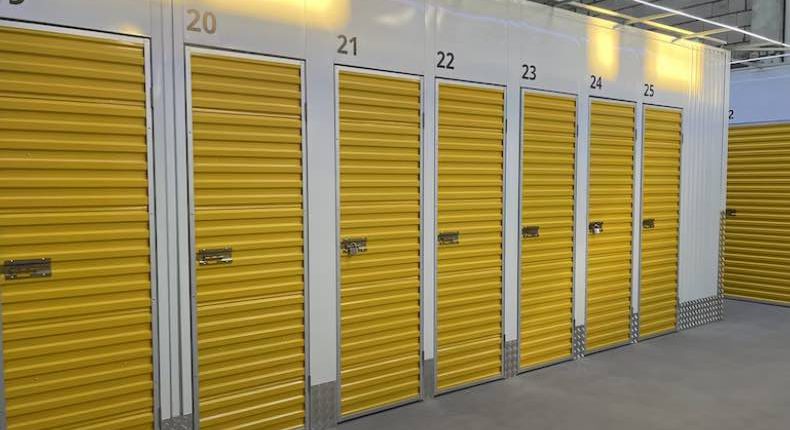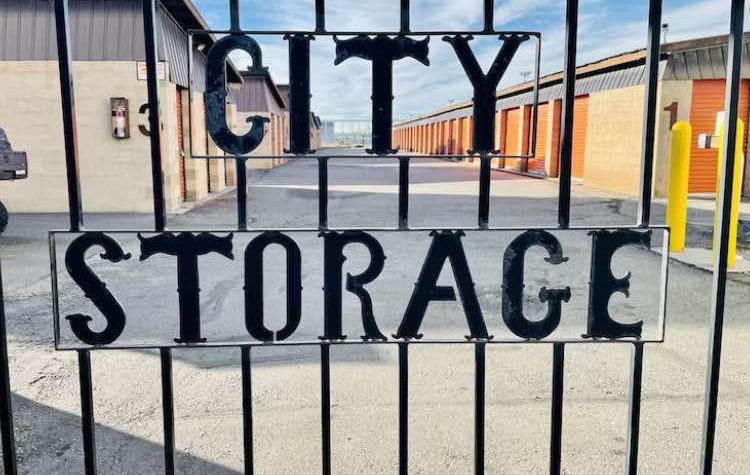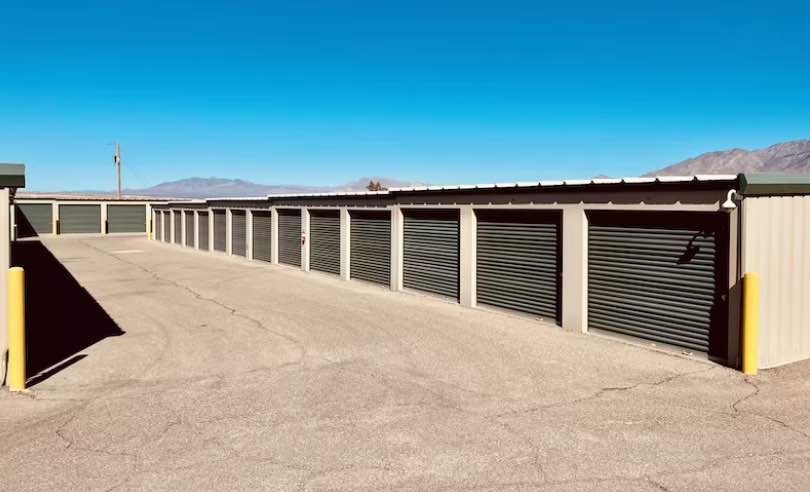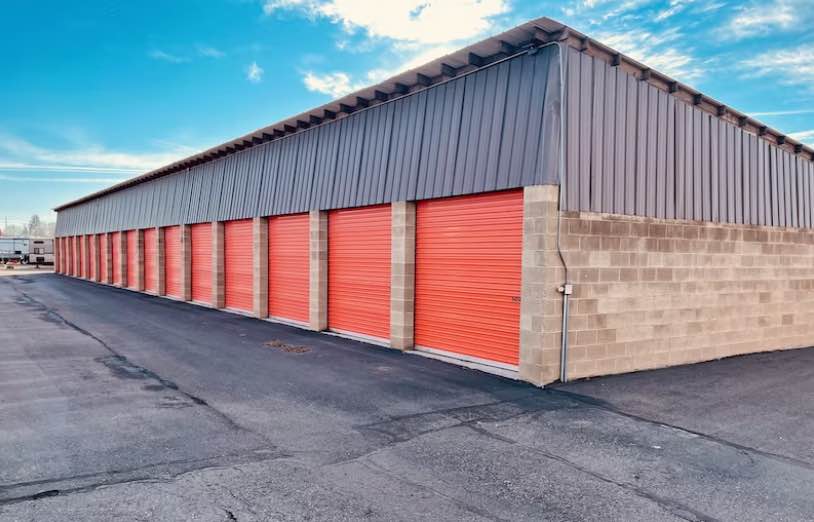The self-storage industry has been a hidden gem in the realm of real estate investments. With its high demand, high profit margins, and robust business model, investing in self-storage can offer consistent cash flow and growth potential.

Continue reading to find a step-by-step guide on how to become a successful self-storage investor. We’ll cover everything from understanding the self-storage market to acquiring an existing self storage facility.
Understanding the Self-Storage Market
Before diving into any investment, it is crucial to understand the market. The self storage industry thrives on people’s need for extra storage space.
Whether it’s a family downsizing their home, a business needing a place to store inventory, or a college student storing belongings during summer break, the need for affordable storage spaces is universal and constant. Self storage investing requires a good amount of research.
The self storage sector offers a range of options from climate-controlled storage units to outdoor storage facilities and vehicle storage. Researching the specific needs and preferences of your targeted customer base can help you decide what type of self storage business to invest in.

Building Your Investment Checklist
As a prospective self storage investor, you should have a checklist of things to consider before making an investment. Here are some key points.
- Location – Look for areas with high demand for storage units. High population growth, apartment complexes, and commercial businesses are good indicators.
- Competition – Investigate the number of existing facilities in your desired area. An oversaturated market may lead to lower rental rates.
- Facility Size & Type – Decide whether you want to invest in a smaller, urban self storage facility or a larger, suburban one. Also, consider whether you want to offer traditional storage units or specialty ones like climate-controlled or vehicle storage.
- Financial Performance – Examine the current cash flow and profit margins of the existing self storage facility, if applicable.
- Startup Costs – Estimating the initial investment is crucial. For a new facility, this includes cost of land, construction, and operating expenses until the business reaches break-even. When buying an existing facility, consider the purchase price and any necessary renovations.
- Market Risk – Assess the stability of the self-storage market in your chosen location. Economic downturns or changes in local ordinances can impact demand and rental rates.
- Maintenance Costs – Regular maintenance is essential for the longevity and appeal of your self storage units. These costs include regular cleaning, security upgrades, pest control, and repairs. Keep in mind that larger facilities or those offering climate control or vehicle storage may have higher maintenance costs.Finding Partners and Franchises for Your Self-Storage Business
- CPA – Find a great accountant who can help keep your books straight and accurate.
Finding the right partners or franchises can be instrumental in developing your self-storage business. Here are some strategies to consider.
- Network at Industry Events – Attend industry conferences, seminars, and trade shows. These events often attract various industry stakeholders, including potential partners and franchises, and can provide excellent networking opportunities.
- Online Directories and Listings – Websites such as FranchiseDirect or FranchiseGator offer comprehensive lists of franchises for sale in various industries, including self-storage. These platforms can help you find reputable franchises that match your investment criteria.
- Leverage Social Media – Platforms like LinkedIn can be a valuable tool for finding and connecting with potential partners within the self-storage industry. Join groups related to the self-storage business and participate in discussions to increase your visibility in the industry.
- Engage a Broker – Commercial real estate brokers or franchise brokers have extensive networks and industry knowledge. They can assist you in identifying potential partners or franchises that align with your business objectives.
- Consider Joining Industry Associations – Organizations such as the Self Storage Association (SSA) often have resources to help members find potential partners and business opportunities. Memberships can also provide access to industry research, educational materials, and other useful information.
Remember, choosing a partner or franchise requires careful due diligence. Ensure you understand the terms of any potential partnership or franchise agreement and consider seeking legal advice before signing any contracts.

Partner with a Real Estate Agent like Joe Stephenson
Partnering with a seasoned commercial real estate agent, such as Joe Stephenson, can significantly streamline your journey into the self-storage investment realm. Real estate agents have a deep understanding of the property market and can provide invaluable insights to help you find profitable self-storage investment opportunities.
They can guide you through property evaluations, price negotiations, and the legal complexities of acquiring a property. Joe Stephenson, with his vast experience and extensive network, can help you identify potential self-storage facilities that align with your investment checklist, undertake due diligence, and navigate the purchase process efficiently. Collaborating with a real estate agent offers a strategic advantage, saving you time and resources, and potentially mitigating risks associated with property investment.

Finding a Self-Storage Investment
After you’ve done your research and have a clear idea of what you’re looking for, the next step is finding a self-storage investment. There are different ways to do this:
- Real Estate Investment Trusts (REIT) – Self-storage REITs own and operate storage facilities. By investing in a self-storage REIT, you can become part-owner of a large portfolio of storage properties without the responsibilities of day-to-day management.
- Direct Ownership – If you prefer a more hands-on approach, you can buy an existing self-storage facility or build one from scratch. This requires more work but also offers more control and potentially higher returns.

Common Customers of Self-Storage
- Homeowners during a move – Often homeowners require storage units to simplify the process of moving. They might need a temporary space to store their belongings between moving out of their old home and into their new one.
- Businesses – Businesses, especially those with physical products, frequently require storage space for their inventory. Additionally, contractors often use self-storage units to store tools and materials.
- Students – Many college students use storage units to safely store their belongings during summer or winter breaks when they return home.
- Military Personnel – Those in the military often have to relocate and require storage units to keep their belongings when they are stationed elsewhere.
- Downsizing Seniors – Elderly people moving to a smaller home or to a retirement community often need self-storage facilities to store items they can’t take with them but can’t part with.
- Travelers – Long-term travelers often need a safe place to store their belongings while they are on the road. This customer base can include digital nomads and people who are temporarily moving for work or other reasons.

Benefits of Investing in Self-Storage Facilities
Investing in self-storage has several benefits.
- Steady Cash Flow – Once your self storage business is up and running, it can provide a consistent income stream from rental fees.
- High Profit Margins – With low overhead costs and the ability to operate with minimal staff, self storage facilities often enjoy high profit margins.
- Recession-Resilient – The self storage industry tends to be less affected by economic downturns than other real estate investments. People always need storage, regardless of the economy.
- Growth Potential – The self-storage market has shown steady growth over the years and is projected to continue expanding.
Investing in self storage can be a lucrative venture if done right. It requires careful planning, thorough research, and strategic decision-making. But with the right approach and commitment, you could be on your way to owning a successful self storage business.
Invest in a self storage space or self storage properties can be a lucrative way to approach real estate investing. Self storage investments are an interesting consideration to add to your real estate portfolio. Be sure to partner with a person who knows their stuff. Joe can help you!




